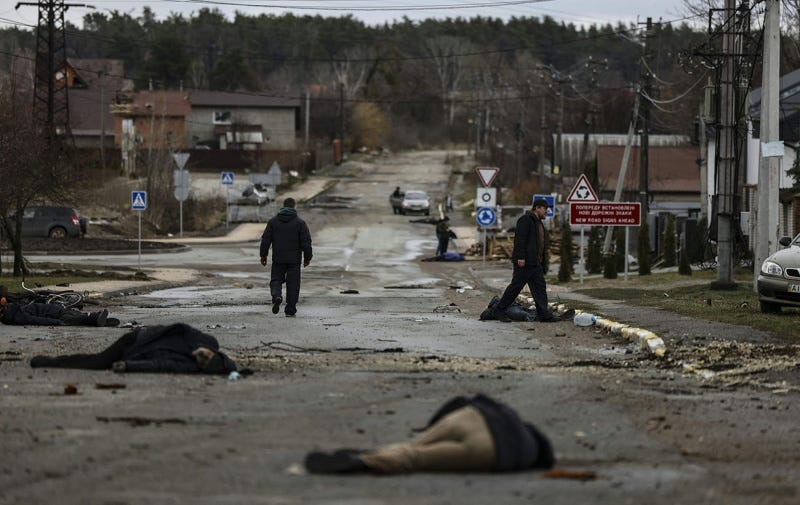
12 OCTOBER—I have been reading for some while now, mostly in independent publications whose credibility I am not in a position to assess, about what goes on in the territories Ukrainian troops have recently retaken. It seems that what ensues very quickly are violent campaigns of reprisals wherein those whose sympathies lie with Russia are called “collaborators” and subject to assassination or arrest.
At the same time, you read of the conditions when Russian forces retreat, as they have done in various places in the east and south lately. You read of wreckage, of desolation, of graffiti scrawled on walls by desperate Russian soldiers as they “flee in disarray.”
You read these things and you are careful not to draw immediate conclusions. Is this or that publication reliable? How independent is it? Who are its contributors?
At the same time, some of these accounts—those concerning the conduct of Ukrainians in towns and villages the Armed Forces of Ukraine have retaken—square with numerous others going back some months, in which details of car bombs, point-blank shootings, poisonings, stabbings, and the like are recounted. This week we read of “revenge killings” in areas most recently retaken in southern and northeastern Ukraine.
The victims in most or all of these cases are people who hold political or administrative positions at local or provincial level, or those who advocate a negotiated settlement between Moscow and Kiev, or those who indeed worked with the Russians when they were present, or simply those who speak Russian and share a history, traditions, religious or familial ties, and so a sort of “motherland” perspective.
You read, you are careful, and you wonder.
Keep reading with a 7-day free trial
Subscribe to The Floutist to keep reading this post and get 7 days of free access to the full post archives.



